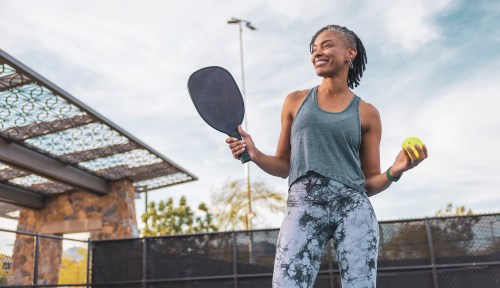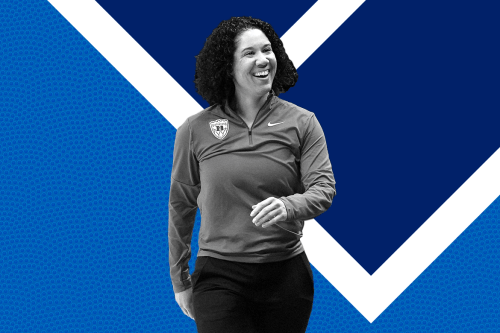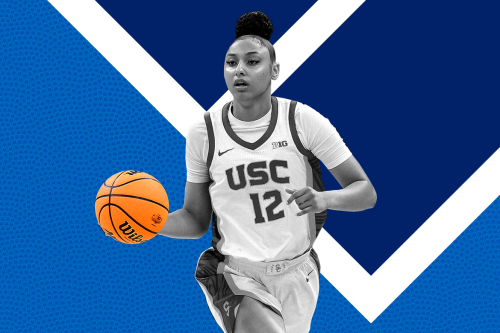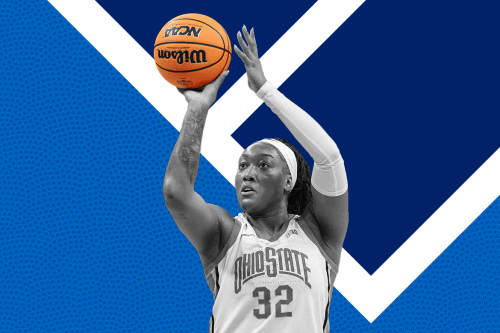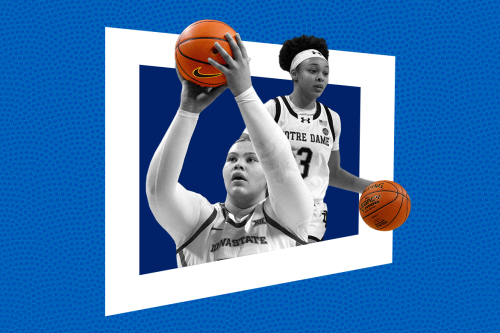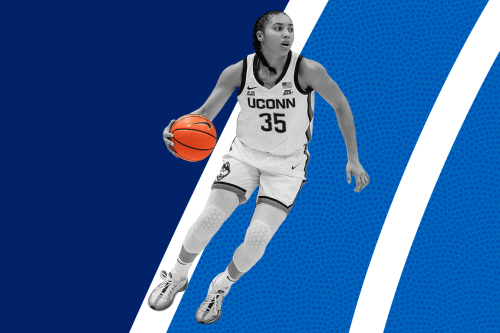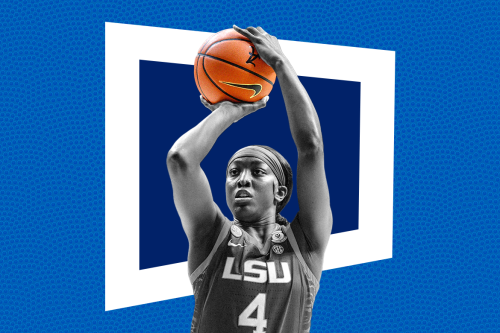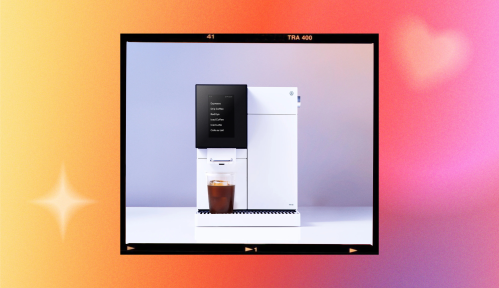Our editors independently select these products. Making a purchase through our links may earn Well+Good a commission
Part of the reason why pickleball’s been exploding in popularity is that it feels, well, a little more manageable than a game like tennis. The court is smaller. The name is cute. The ball feels less threatening. But with the rise of pickleball has come the rise of pickleball injuries. The game can sneakily challenge your endurance, speed, agility, and balance.
Experts in This Article
master Pilates educator and owner of three Club Pilates studios in Florida
One way to stay safe on the court? Cross-training to strengthen your muscles with a low-impact workout like Pilates. That’s why Shannon Willits, a master Pilates educator for Club Pilates and a functional Pilates for golf & racquet specialist created a Pilates class specifically for pickleball players.
The workout is based around functional movement patterns that you use while playing pickleball. “Squatting, lunging with reaches and rotation, and pivoting movements to change direction—it’s essential to develop these functional skills with a focus on mobility, stability and strength, not only for performance but to reduce the risk of injury,” says Willits.
Why Pilates is a fit for pickleball
Although traditional strength training can be helpful for improving your performance on the pickleball court, Willits says she prefers using Pilates.
“Traditional strength training generally strengthens the muscles from origin to insertion and focuses on the contraction, or shortening, phase of the muscles,” says Willits. But pickleball requires us to be able to use strength on the court in all directions, both when muscles are contracted and extended.
“The Pilates method strengthens the entire body through the core,” explains Willits. “The elements of control and alignment reflexively turn on the core, which stabilizes the hips, spine, and shoulders, making it safe for everyone, while meeting the strength demands specific to pickleball.”
Willits adds that Pilates helps improve the mind-body connection, which, in turn, improves your proprioception (aka your awareness of your body and limbs in space). The better your proprioception, the more agile and coordinated you will be, and the lower your risk of falling when you are lunging or making quick movements on the court.
The flexibility you can gain through Pilates can also help prevent falls on the court because you’ll be better able to move your body through the full range of motion in a smooth and limber way while retaining your balance. In particular, Willits recommends doing a functional flexibility warmup prior to playing—she offers a free one at pilates-pickleball.com.
Try these Pilates exercises for pickleball
Willits is a big fan of using Pilates exercise equipment, such as a springboard and EXO chair, in her Pilates for pickleball workouts. These pieces of equipment further challenge your balance and core activation.
However, if you don’t have access to these training tools, you can also perform some Pilates exercises on the ground. Here are a few functional Pilates and strengthening exercises we recommend for pickleball:
Scissors
This is one of the best Pilates exercises for pickleball players because it mimics the reciprocal leg pattern of on the court, while also strengthening your core and hips.
- Lie on your back with your knees bent, feet flat on the floor, and core engaged.
- Use your abs to draw your right leg up so that your hip and knee are bent 90 degrees each and your shin is parallel to the floor.
- Slowly lower the right leg back down just tapping the floor while simultaneously raising the left leg in the same way so that your legs are moving reciprocally.
- Keep the 90-degree bend in your knees as your legs come up and down. Don’t fully plant your foot in the ground with each rep—just tap it.
- As you develop more core strength, gradually straighten your legs more and more so that your feet are tapping down further away from your body.
- Do 10 to 12 reps per leg.
Hollow Holds
This exercise increases core and pelvic strength. Stability in your hips and core can help you stay balanced on the court, especially when lunging to the side or making quick, cutting movements.
- Lie on your back with your arms extended straight overhead.
- Engage your core, and lift your head, upper body, and lower body so that your body folds upward with your arms and legs at about a 45-degree angle to the floor.
- Hold this position, breathing slowly for 20 to 30 seconds and then release.
Sumo Squats
The sumo squat position helps you develop your athletic stance for pickleball, while strengthening your legs and core.
- Stand with your feet slightly wider than shoulder-width apart, with your toes pointing about 45 degrees outward and your hips externally rotated.
- Inhale, sitting your hips backward as if reaching your butt back to sit in a chair. Keep your core engaged, your chest up, and your back straight.
- Exhale, pressing through your heels to return to the starting position.
- Complete 12 to 15 slow reps.
Side Lunges
- Stand upright with good posture and your feet hips-width apart.
- Take a big step out towards the right with your right leg.
- Lean into this leg, bending so that you are in a side lunge. If you have access to a Bosu ball, you can step this leg up onto the Bosu ball to increase the difficulty.
- If you have a light dumbbell, you can also reach your right hand up and out to the side as you lunge to strengthen your core and shoulders.
- Complete 12 reps, and then switch sides.
Sign Up for Our Daily Newsletter
Get all the latest in wellness, trends, food, fitness, beauty, and more delivered right to your inbox.
Got it, you've been added to our email list.
